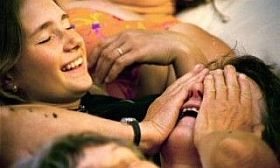


Baltic Documentaries at ZagrebDox

This is a text for the ZagrebDox catalogue 2012: The films that you are going to watch from Estonia, Latvia and Lithuania are the finest examples from a cinema that has, from country to country, its own individuality and its own individuals. You will meet films by young and old talents, some with quite a track record, nationally and internationally. Directors with a vision, both in terms of theme and aesthetics.
The selection for this retrospective programme of documentaries from the three Baltic countries have been done with a focus on the last 10 years, omitting not only films from the last century but also films from 2010 and 2011 – some from these years were already shown at ZagrebDox.
Allow me to be personal to say that the relation between me and the Baltic documentary is a pure love story, which started in the year 1990 when the Soviet empire was falling apart. In Denmark we started a film festival on the island of Bornholm where filmmakers from the countries surrounding the Baltic Sea came to present their works. The festival went on for 10 years and we travelled to Tallinn, Riga and Vilnius to select the film. In this century I have continued to visit the countries to scout for films other festivals and to take part in the Baltic Sea Forum, where new film projects are being pitched.
What we met way back in 1990, was of course a documentary tradition that was based on the Soviet tradition – and on its way to break with the very same. In Estonia the leading figure was Mark Soosaar (whose beautiful, personal film ”The Home for Butterflies” is part of the retrospective), in Latvia the names were Juris Podnieks, Ivars Seleckis and Herz Frank, in Lithuania
Henrikas Sablevicius was the grand inspirator and teacher for the young generation.
The films in the early 90’es dealt with the newly gained freedom and loads of film came out that had a historical focus on the brutalities of the Soviet occupation. Later on there was a change towards current issues, and a change of format, not to forget, leaving the short documentaries meant to be screened in cinemas to go for longer films, that eventually could appeal to European broadcast formats. Many filmmakers, who had been employed during Soviet times, had difficulties in adapting to the free market economy, at the same time as independent production companies were established making the job of a producer important.
When I first got acquainted with the Baltic documentaries, I imagined that the films were more or less the same in tone and aesthetics from country to country. They are not, as you will be able to experience in the programme.
Going from the North, Estonia has definitely a sense of humour that could resemble the neighbours in Finland. For sure the films of Manfred Vainokivi (”Jolly Old Farts”) and Maimik and Jaak Kilmi (”The Art of Selling”) will make you smile in their own original style, whereas Mark Soosaar and Kersti Uibo represent a personal auteur style.
In Latvia it was obvious to bring in a film by Laila Pakalnina, a master of the short documentary, always thinking in images more than in words, as demonstrated beautifully with multi-layered ”Dream Land”. Her younger colleagues, the cameraman Maris Maskalans and director Andis Miziss, made another visually brilliant man & nature film ”Roof on the Moonway”, and for two other films presented I chose to go for the theme of art and creation. Theatre and film director Viesturs Kairiss, reintroduces “Romeo and Juliet” and David Simanis, for me the most shining star in modern Latvian documentary, follows the same Kairiss in his work with Wagner, and gives his own interpretation in “Valkyrie Limited”.
Lithuania, the most Southern country of the three, is the most different in a form, that is very much implemented by the well known couple: Audrius Stonys and Arunas Matelis. It is only natural to start the Lithuanian retrospective with their common extravagant hymn to their own country, “Flight over Lithuania”, followed by two films by Stonys (“Alone” and “Uku Ukai” (PHOTO) and one by Matelis, the masterpiece “Before Flying Back the Earth”. Oksana Buraja brings the tradition of the two masters forward with “Diary”, whereas Giedre Beinoriute represents a new generation with her original film on “Grandma and Grandpa”.
Three small countries, suffering the economic crisis of course, but still with strong documentaries in themes and artistic quality.